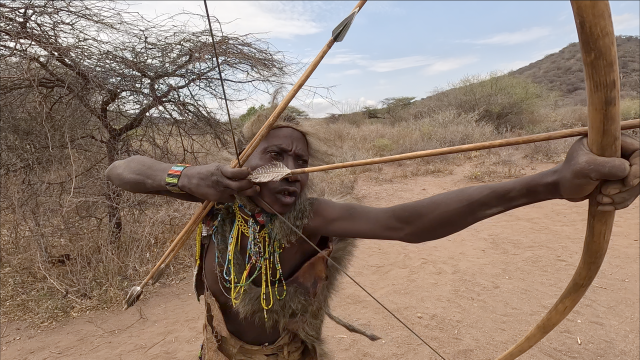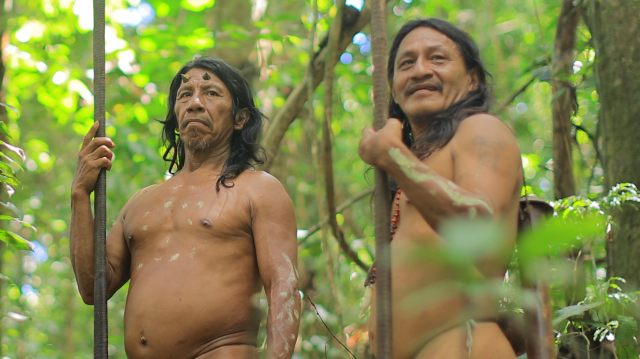SEOUL, October 11 (AJP) - In a world where cultural diversity faces increasing threats, Jang Jun-ho, a Korean YouTuber, is on a mission to document the vanishing lifestyles of indigenous tribes across the globe.
Jang, who runs the YouTube travel channel Yeokmasal Road, has recently garnered attention for his exploration of the Hadza, a hunter-gatherer tribe in Tanzania.
"The decline of indigenous cultures and communities is heartbreaking. The Hadza, for instance, are dwindling due to the pressures of modernization," Jang said in an interview with AJP.
"Observing these transformations evokes a sense of loss, as these experiences may be among the last of their kind," he added.
The Hadza survive by hunting animals and gathering food such as berries, baobab fruit, honey and tubers.

"We might be witnessing the last moments of their traditional ways of life," he said.
Before launching his YouTube channel in March, Jang spent 24 years as a producer for major Korean broadcasters KBS, SBS, MBC, and EBS.
Despite receiving numerous accolades for his TV shows at major networks, he felt compelled to pursue a vision more closely aligned with his passion.

"Since starting this journey in March, we have seen a consistent increase in views for each video," he said. Jang aims to reach between 150,000 and 200,000 subscribers this year, with a goal of one million next year.
Currently, Jang is showcasing the Huaorani tribe from Ecuador's Amazon region and plans to produce content featuring tribes in Cambodia and Indonesia.

"Each story we capture is not just a glimpse into another way of life — it's a testament to humanity's resilience and beauty."
Throughout his adventures, Jang has frequently faced dangerous situations.
He once broke his finger when a wave jolted the boat he was on. He was also injured after landing on rocky ground while skydiving. The injury was so severe that his bone was visible.
"But I do acknowledge that these risks are an inherent part of my work," he said.

"Indigenous tribes like the Hadza in Tanzania and those in the Amazon are facing significant challenges due to modernization and land appropriation," he said.
"The Brazilian government (under former President Jair Bolsonar) prioritizes economic development over indigenous rights, arguing that tourism resources shouldn't be sacrificed for minority groups," he added.
Although some land is returned to the tribes, it is typically under restricted use agreements rather than true ownership, forcing them to cooperate with tourism efforts.
This commodification reduces their rich traditions to mere entertainment for visitors, underscoring the urgent need for indigenous voices in discussions on land rights and cultural preservation, he said.

One of his cinematographers' wives has suffered from depression due to his long absences, spending about 20 days away at a time, only to leave for filming again after a few months.
"I don't think many families can understand or endure such a situation," he said.
In his approach to documenting traditional cultures, Jang stresses the importance of open-mindedness.
"While filming, we ate everything, like snakes and various exotic foods that the locals eat. Eating these foods is a cultural experience, and we enjoy experiencing new cultures through food."
Copyright ⓒ Aju Press All rights reserved.



